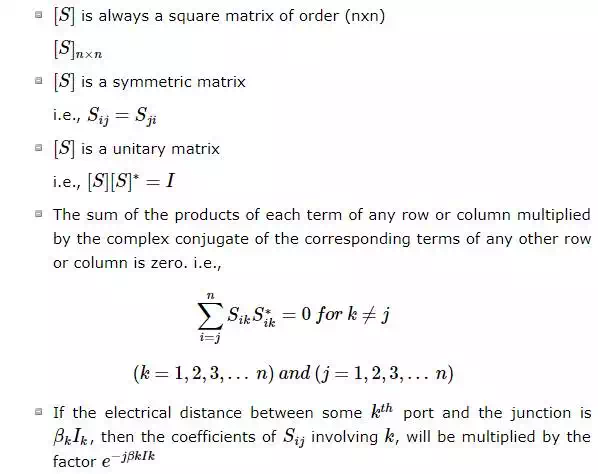Microwave Devices
Just like other systems, the Microwave systems consists of many Microwave components, mainly with source at one end and load at the other, which are all connected with waveguides or coaxial cable or transmission line systems.
Following are the properties of waveguides.
- High SNR
- Low attenuation
- Lower insertion loss
Waveguide Microwave Functions
Consider a waveguide having 4 ports. If the power is applied to one port, it goes through all the 3 ports in some proportions where some of it might reflect back from the same port. This concept is clearly depicted in the following figure.

Scattering Parameters
For a
two-port network, as shown in the following figure, if the power is applied at
one port, as we just discussed, most of the power escapes from the other port,
while some of it reflects back to the same port. In the following 

If the source is applied to the opposite port, another two combinations are to be considered. So, for a two-port network, 2 × 2 = 4 combinations are likely to occur.
The travelling waves with associated powers when scatter out through the ports, the Microwave junction can be defined by S-Parameters or Scattering Parameters, which are represented in a matrix form, called as "Scattering Matrix".
Scattering Matrix
It is a square matrix which gives all the combinations of power relationships between the various input and output ports of a Microwave junction. The elements of this matrix are called "Scattering Coefficients" or "Scattering (S) Parameters".
Consider the following figure.
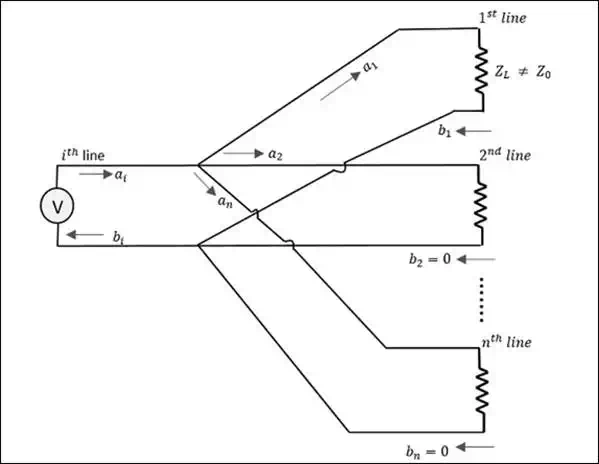
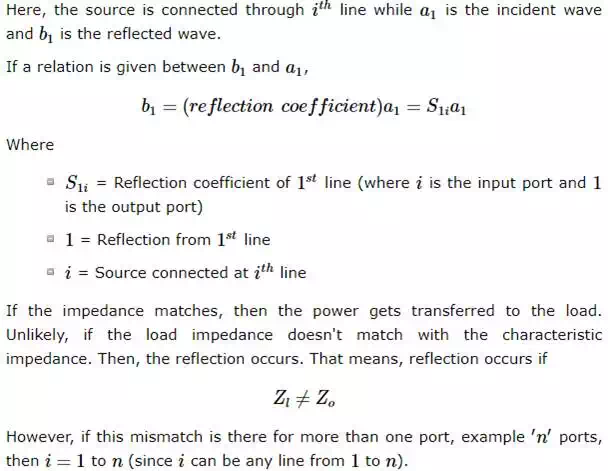
Therefore, we have
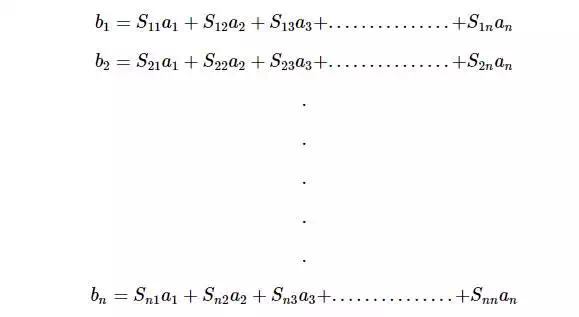
When this whole thing is kept in a matrix form,
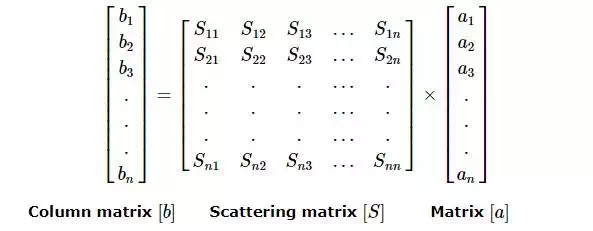
The column matrix [b][b] corresponds to the reflected waves or the output, while the matrix [a][a] corresponds to the incident waves or the input. The scattering column matrix [s][s] which is of the order of n×nn×n contains the reflection coefficients and transmission coefficients. Therefore,
[b]=[S][a]
Properties of [S] Matrix
The scattering matrix is indicated as matrix. There are few standard properties for matrix. They are −
